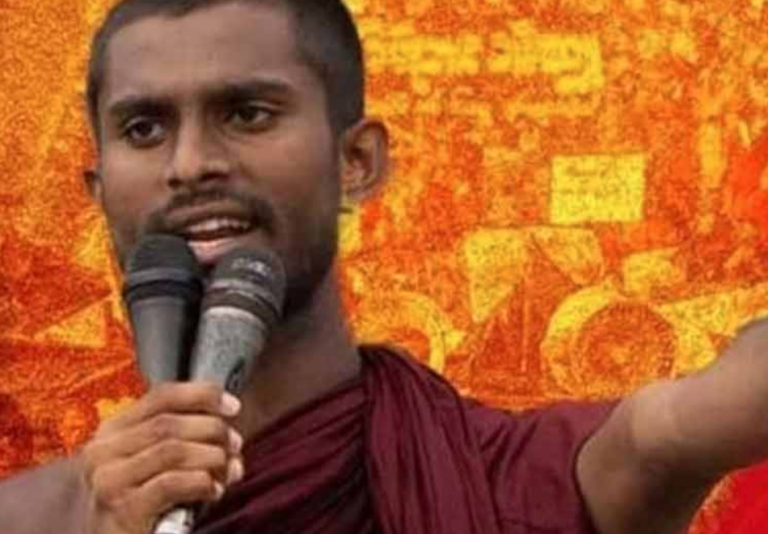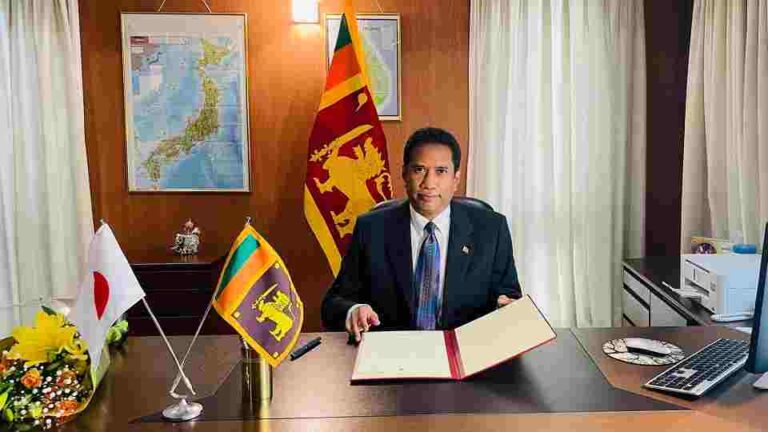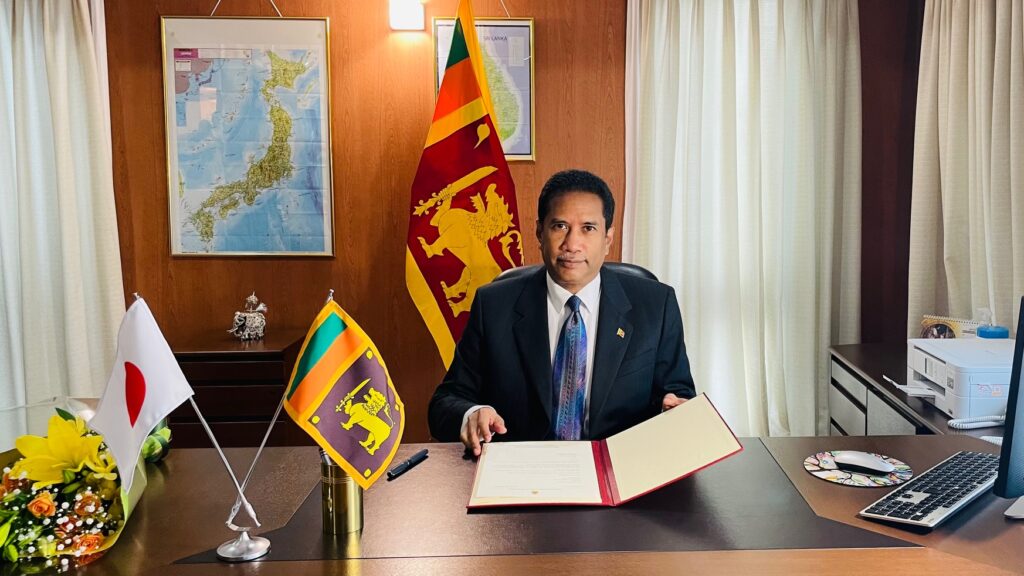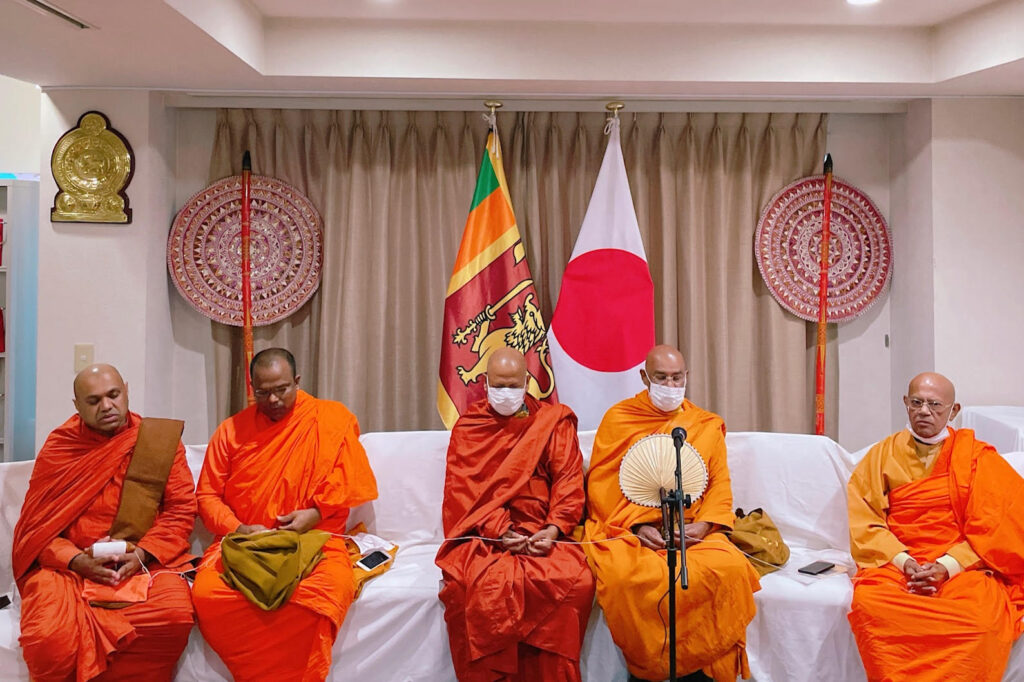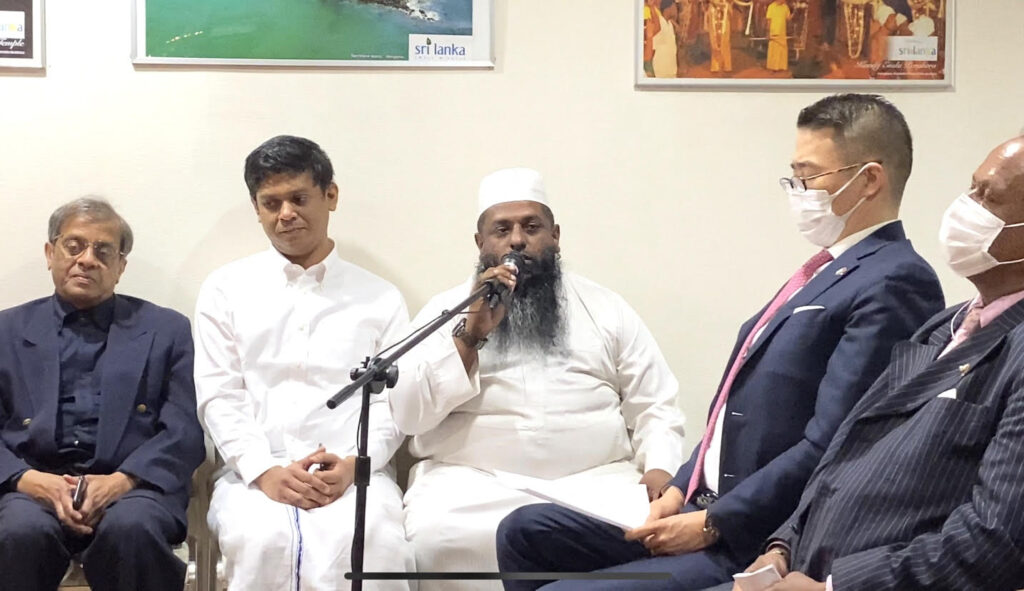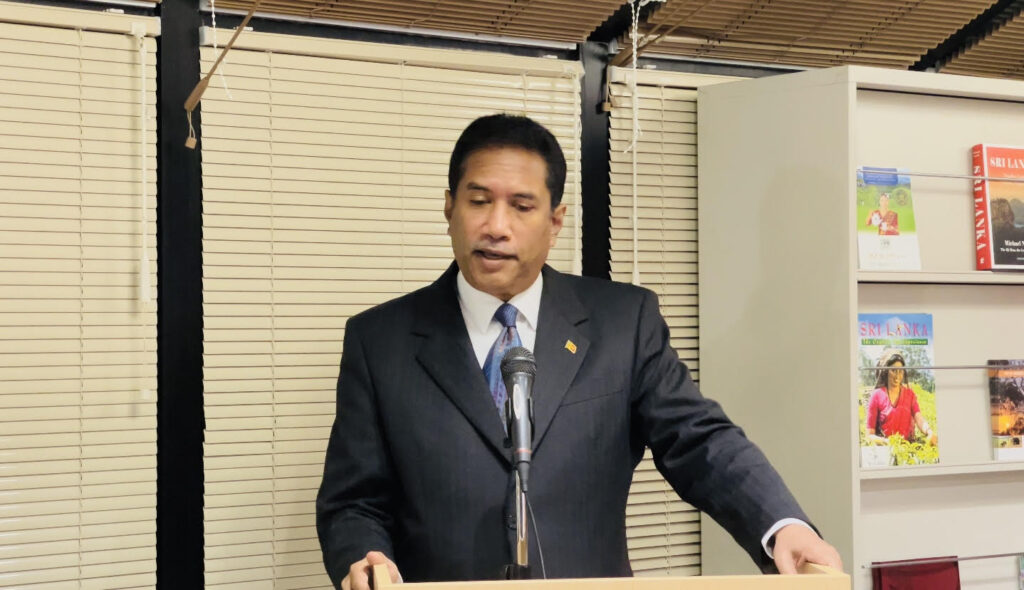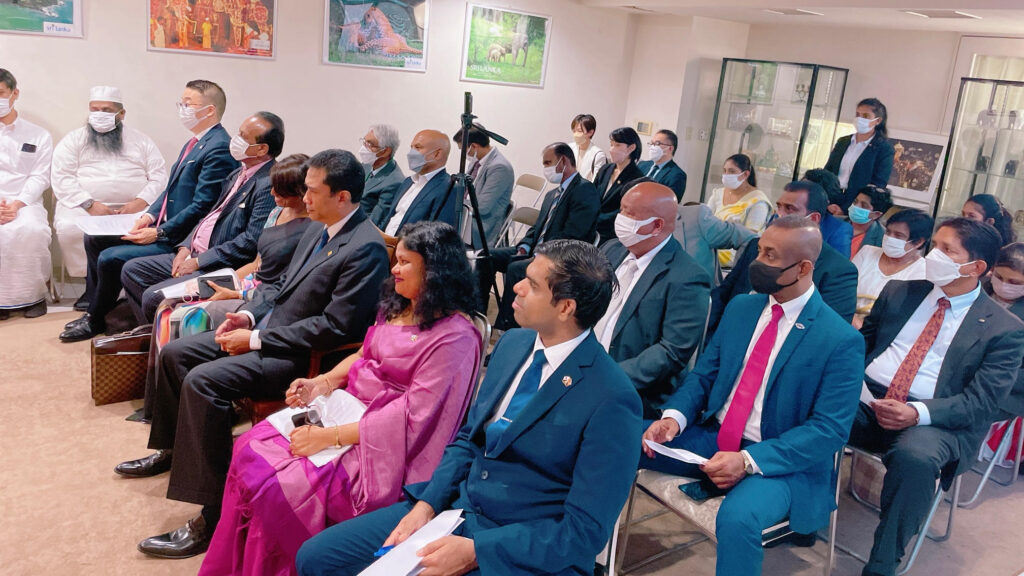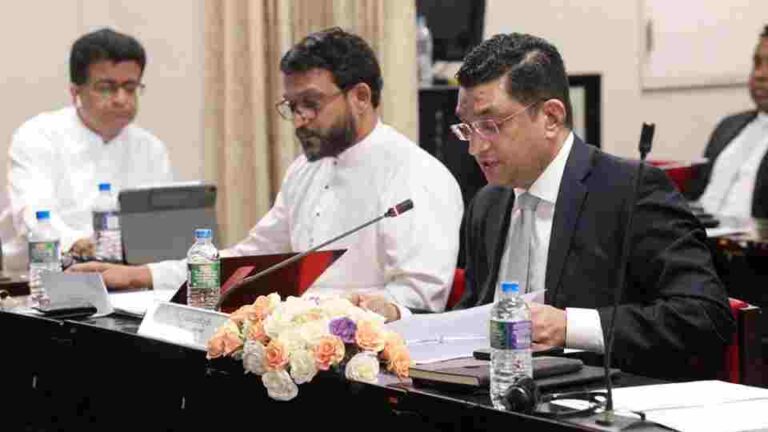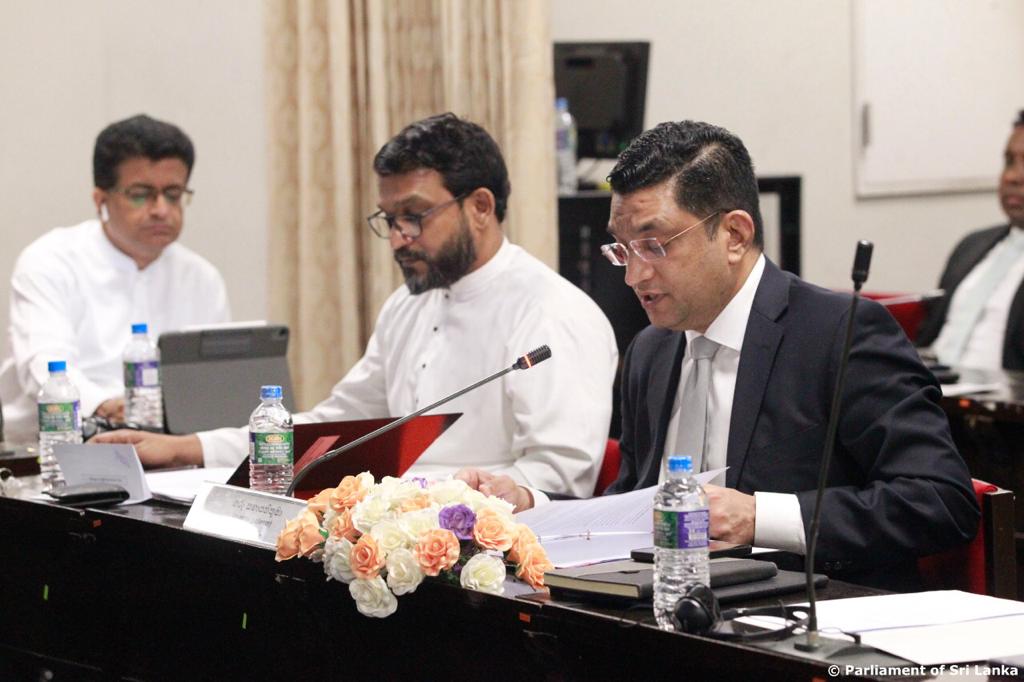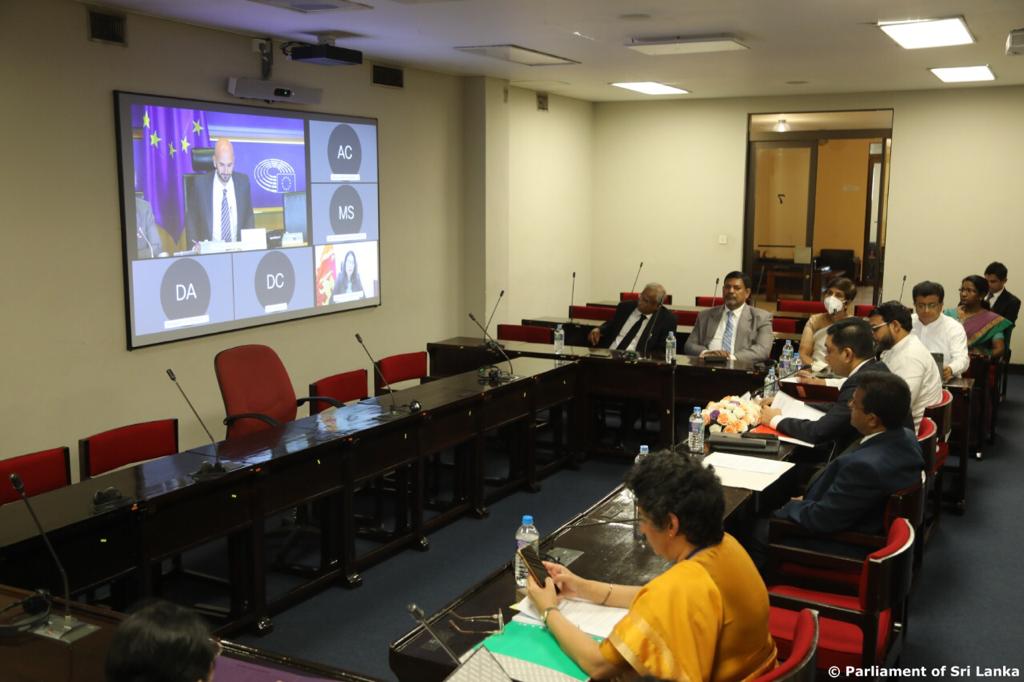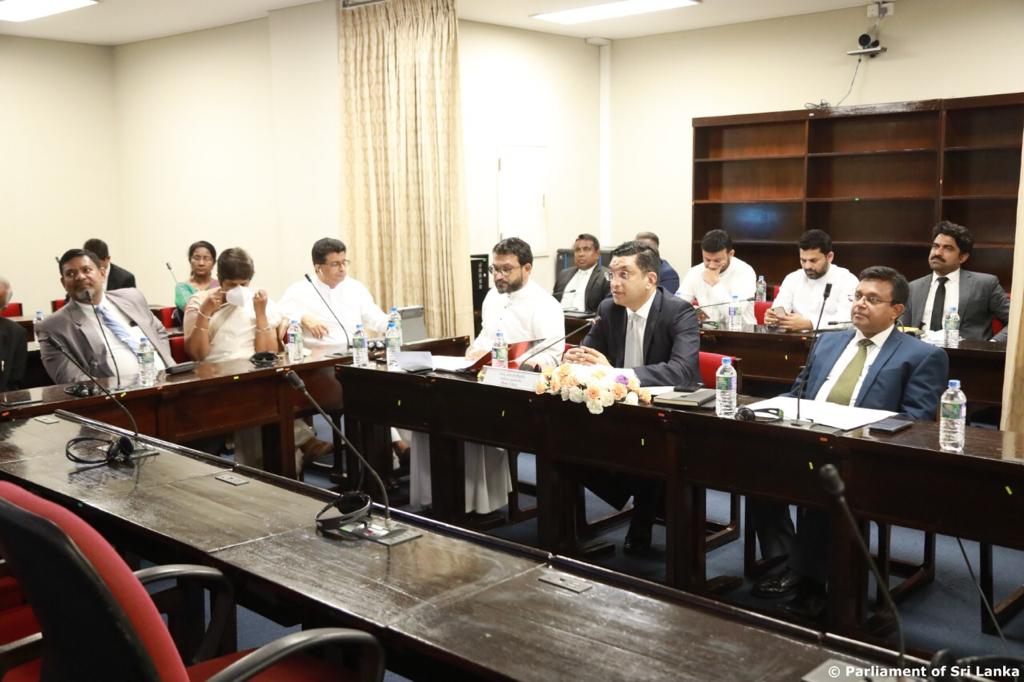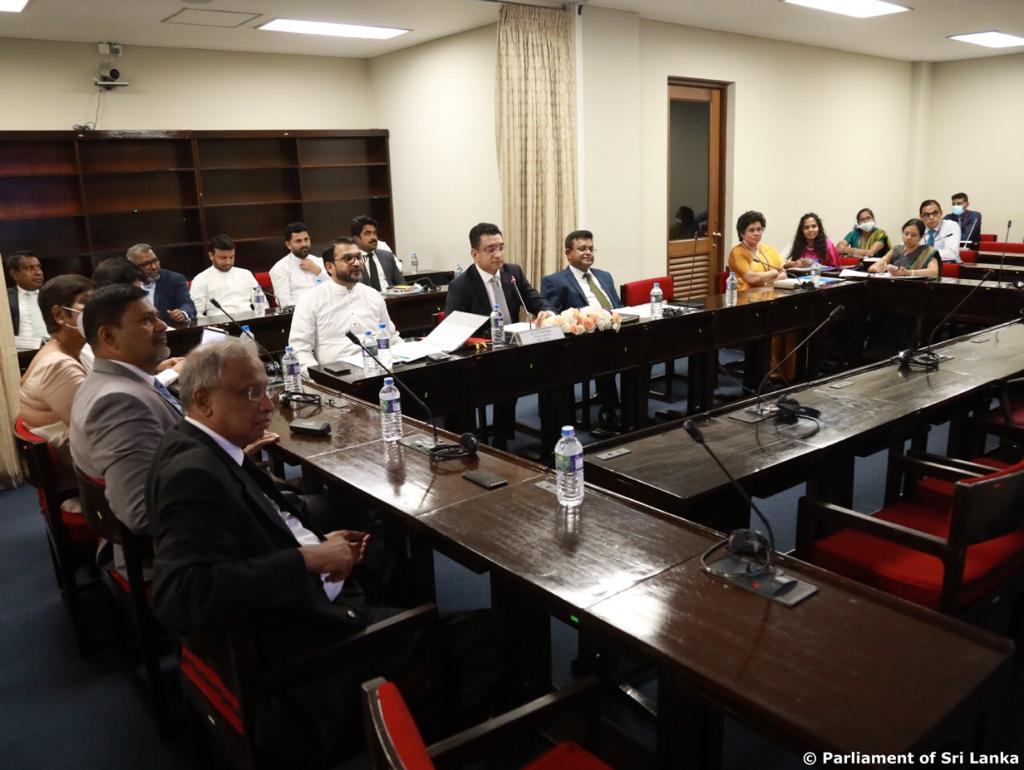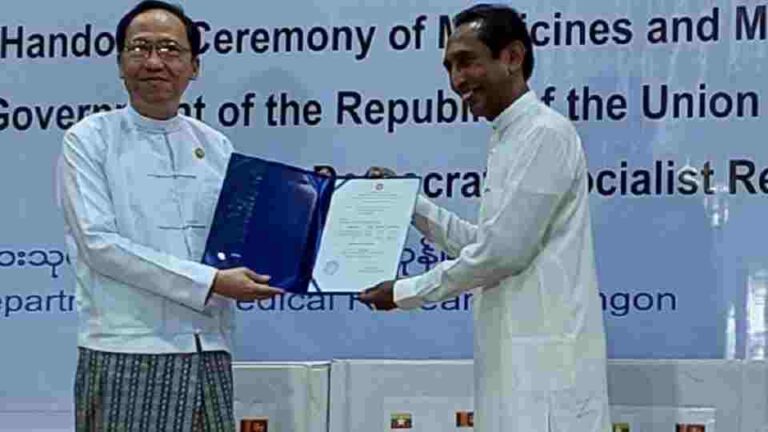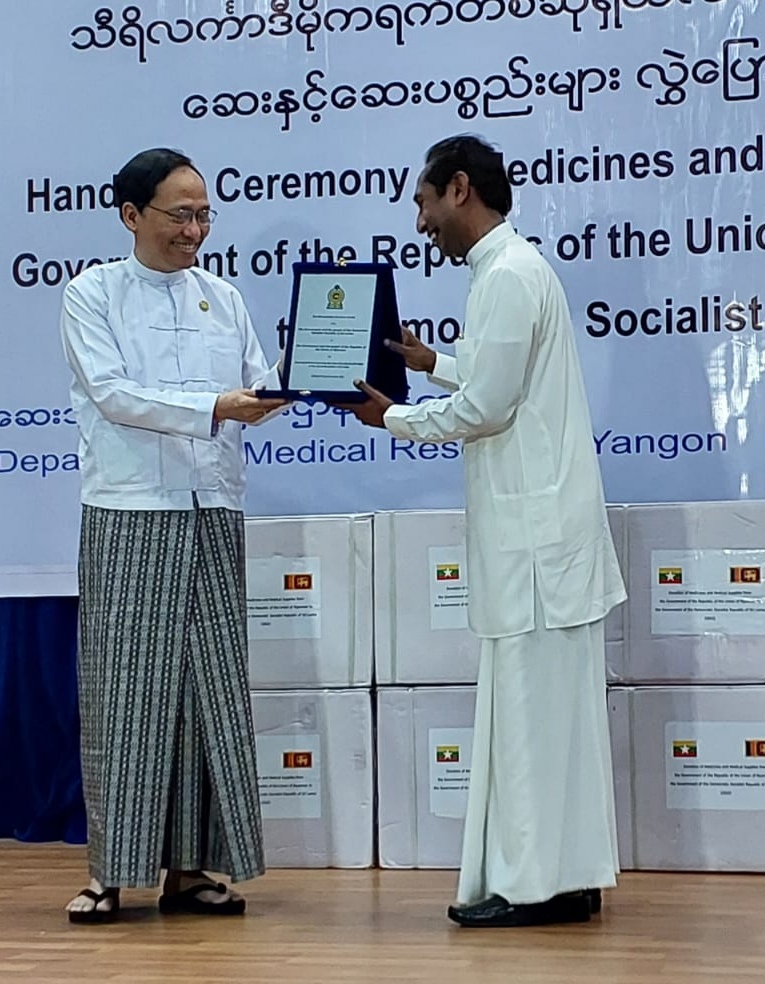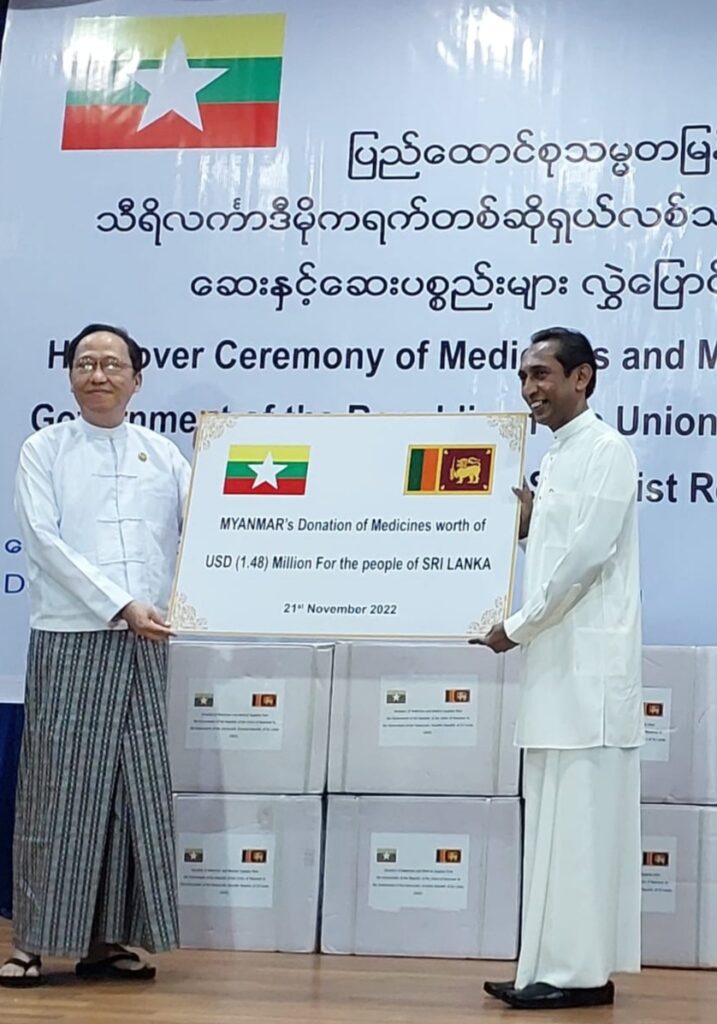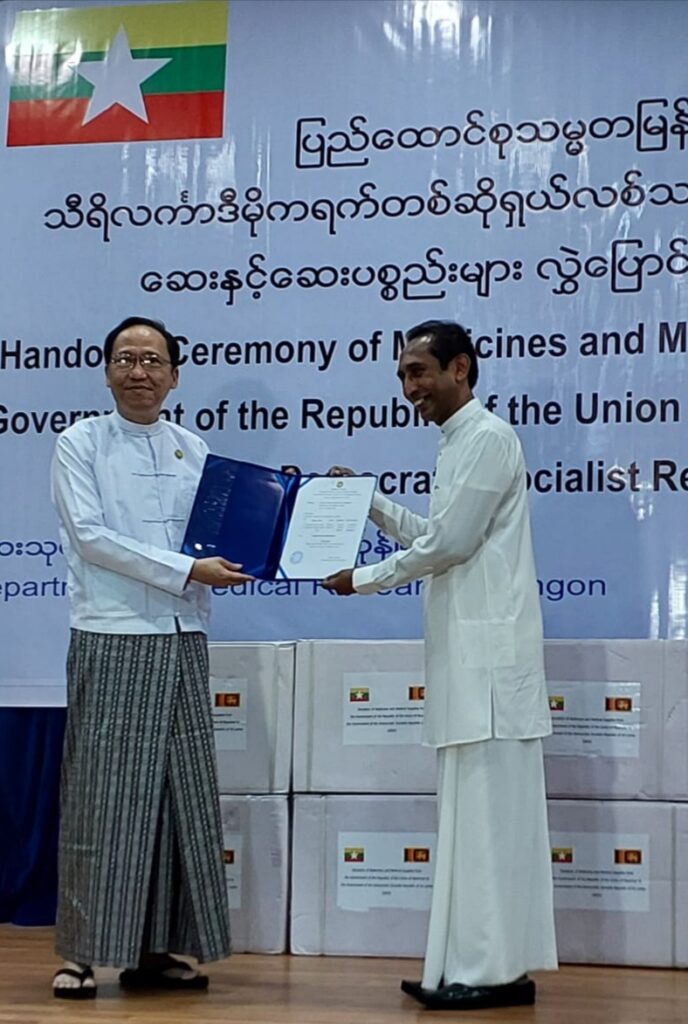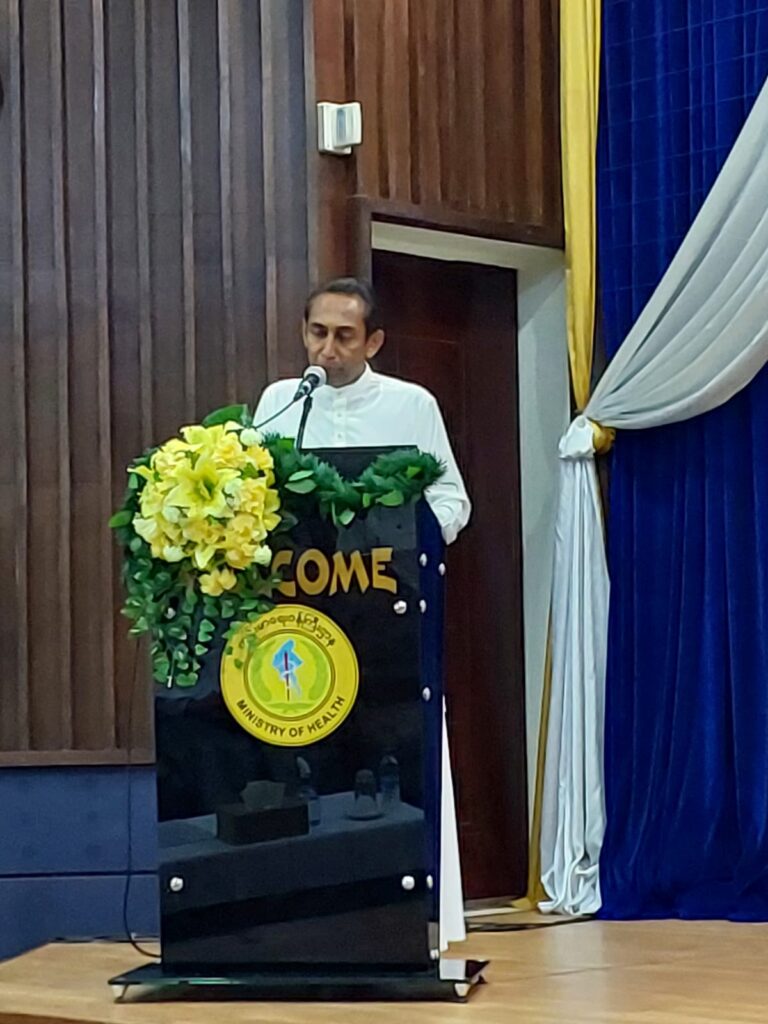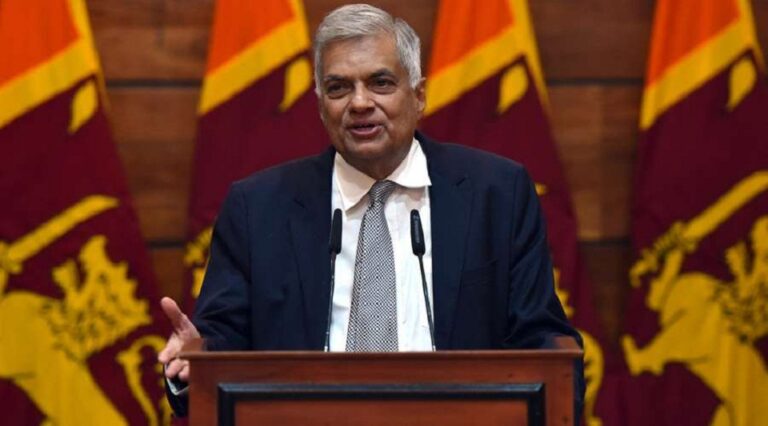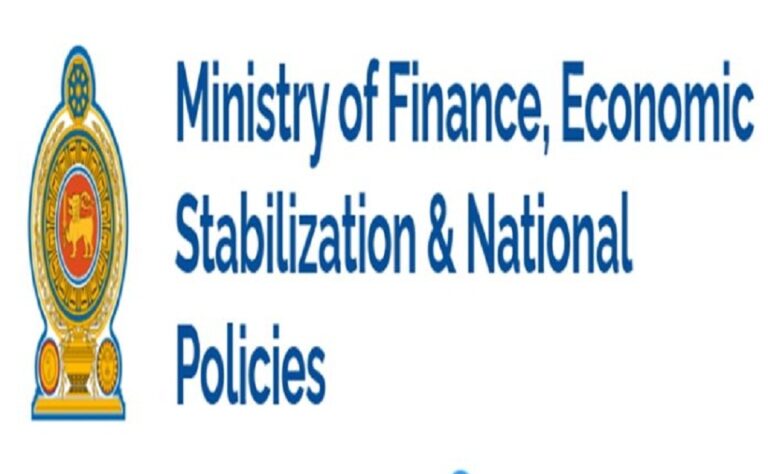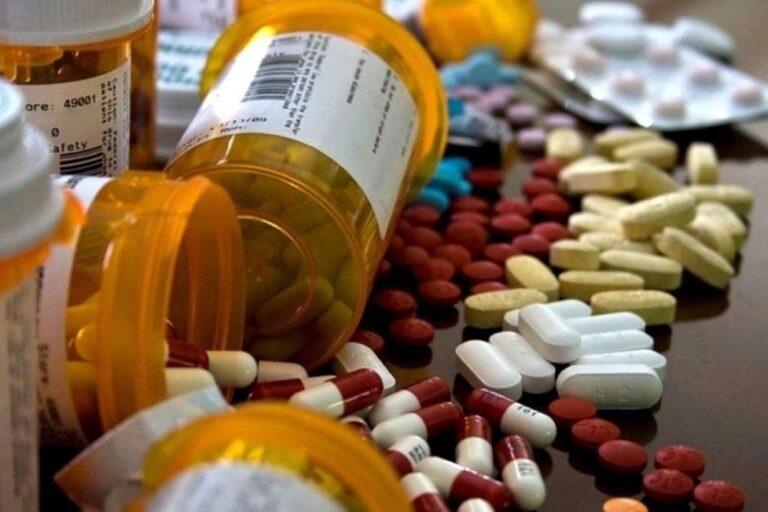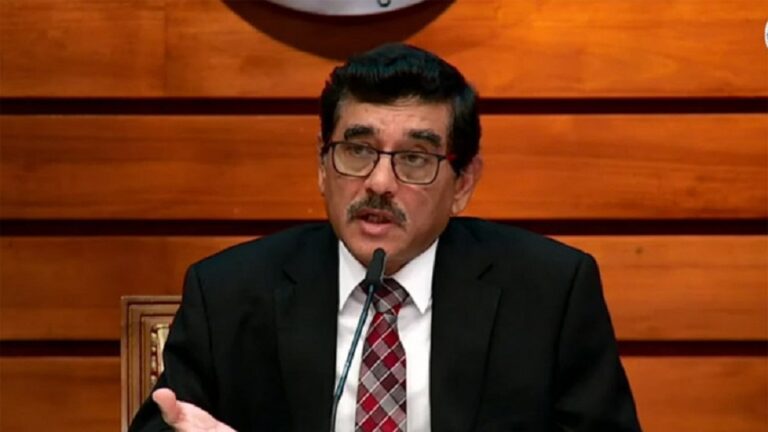• President invites all political parties
• Dinh Diem style of governance will never be allowed
President Ranil Wickremesinghe said that a discussion will be held after the conclusion of the budget on December 11th to reach a consensus among all political parties to achieve a permanent solution to the ethnic crisis, including power devolution.
The President said this delivering a special statement in parliament today (23).
President Ranil Wickremesinghe emphasized that he will never allow a Dinh Diem -style rule, and warned that if such an attempt is made, the military will take measures to impose emergency law and prevent it.
President Wickremesinghe further said, “Hon Speaker, first I would like to tell Hon. Sumanthiran that when we were in Vavuniya the day before we did discuss and sorted out the questions regarding the Dept. of Wildlife and Dept. of Forests. It’s a problem not confined to the North. It’s in most parts of the country, so we will be taking that up. Having said that, I think all that has to be known about the problems of this country, be it the ethnic problem or whatever you call it, from 1984 until now, we have done it. There is nothing new to talk about. It is just to take what is relevant and I think we can do it by next year which is my aim. It’s the 75th Anniversary of Independence and if you can’t do it by then, you may not have that Sri Lanka by 2048.
So, one is, we have to build up confidence with the Tamil community, but we’ve also got to build up confidence with those people in the Sinhala community who has reasonable concerns as to where it will lead. Finally, we are also looking at the Muslim community and we’ve discussed that all those for whom against there is no evidence, these young people will be released and this was discussed at the Security Council as well.
Before the commencement of this debate, the leader of the opposition as well as MP Lakshman Kiriella said to sell loss-making institutions but not to sell profit-making ones for a minor amount. Privatization started under President Premadasa. I started it as the then Minister of Industry.
Initially, we privatized United Motors. It was a profit-making company. Also, the privatized Ceylon Oxygen, Leather Corporation, Tyre Corporation, Lanka Milk Food, and Lanka Distilleries were all profit-making companies. Later, the plantation companies were privatized, some of these companies made profits, and some companies were making losses.
In 1977 Mr JR. Jayawardena opened the economy. President Premadasa took the next step in 1989. Accordingly, some institutions were removed from government control and handed over to the private sector. An example was the program started by Mr Deng Xiaoping in China. We took it forward. We are trying to implement this program again.
Yesterday, former President Mahinda Rajapaksa declared that only loss-making institutions should be privatized. In support of him, the leader of the opposition said that only loss-making institutions will be sold. Now you have a good follower. So let’s decide what we’re going to do.
I also listened to the Prime Minister’s speech. Today we are fortunate to be able to have a normal debate in this House. This is something that is done in every country. However, between May 9th and July 13th, we were uncertain if there would be such a situation. We have now gone to the court regarding the incident.
One member of parliament was brutally killed on the streets. The other Member of Parliament was the first to say “Gota go home”. He fortunately escaped. How can we approve this? We opposed such incidents.
The previous week he had wanted the government to be toppled. Then there were attempts to burn the person who said that inside his car. If this government should be toppled or if it is to be Gotabhaya Rajapaksa or Mahinda Rajapaksa is irrelevant. These are matters that should be solved within.
Some of the houses that were burnt belonged to those who had not even participated in the meeting that was held at Temple Trees on that day. My question is, what could anyone hope to gain by setting fire to the homes of MPs be it government or opposition?
Nalanda Ellawala was killed in an incident in which some of the parliamentarians were involved. They were arrested. The residences of some persons were burnt in Ratnapura. We objected to it then. Burning of residences of parliamentarians of government or opposition sides is unacceptable as 225 of the MPs have been elected by the mandate of the people in the country. Hence, they should be allowed to execute their duties.
We need better representatives at the next election. But the professionals say that they are not allowed to enter into active politics with their wives for fear of their homes being burnt. Then is it only the thugs that would represent the public in Parliament? So we have got to pay compensation to the affected and provided them with security.
The former President was ousted on July 09th. See the damage caused to the official residence of the President and the Presidential Secretariat building after the protesters acquired them. I have got a complete report of what they said and did there.
They set my house on fire, as I did not resign from the office of Prime Minister. How could I resign as I had the majority of the Parliament? If any other needed power they had to set up an all-party government. They acquired the Prime Minister’s Office. On the 13th of the same month, they came to acquire the Parliament to identify themselves as the government.
Had they succeeded in taking over the parliament, the government would become a puppet government. That is the reason why I asked the opposition not to be driven by such forces. The public was not with them. Finally, they criticised me and told foreign media that I was a dictator. It was I who brought the 17th Amendment to the Constitution. That is why Mrs. Chandrika Kumaratunga assisted me. It was I who brought the 19th and 21 amendments to the Constitution and that is why SLPP MPs helped us. Al Jazeera said that I was a dictator and asked me to be a good democrat like in Qatar. I can’t be such.
By this, the state governance system was completely lost. If the Parliament was taken over, then the matter would have to be taken to the Supreme Court. Who was behind this? It was the Socialist Frontline party including Kumar Gunaratnam. Now we have adopted the 21st Amendment. Many people said that Mr Basil Rajapaksa should leave because he has dual citizenship. We have to accept it. How can the leader of the Frontline Party demand such whereas, he also had dual citizenship in Australia and Sri Lanka? One can’t be accepted while the other is not.
If we don’t want Basil to come because he is a dual citizen, then what about Kumar Gunaratnam? He is also not someone who has been elected through a vote. He too has dual citizenship. Basil Rajapaksa has allegations against him and when I was the prime minister I even took him to court. He was also remanded. What are the allegations against Kumar Gunaratnam? He is accused of killing Indian Peace Keeping personnel during the war in the North. This is our liberation.
What happened on May 09 and July 04? Some of our temples were threatened and burned. The Maha Sangha of the Malwatu and Asgiri temples were threatened and warned not to speak. Our Sangha was afraid and did not speak. Then how can Article 09 of the Constitution be protected? We are bound by the Constitution to protect Buddhism. Who was behind these? Our young monks were used for this. They went and asked the Mahanayake Theros to step down and hand over leadership to them.
Hindu priests were also threatened. The same goes for Muslims. The Catholic Bishops also said that they are against violence. Then who were the religious leaders that were with these people? We do not want to lead this country to Dinh Diem rule.
I will not allow any Dinh Diem or those around him. Now they say they are going to start the struggle again. Anyone can hold meetings, the JVP had meetings. The TNA is holding meetings in the North.
Anyone can hold protests or meetings legitimately. You can shout as much as you want and call me a dictator. I don’t mind. However, I must say one thing. Get your permit to protest before you take to the streets. Don’t obstruct vehicular movement and get onto a side of the road and protest. That’s all I am asking.
Yet, if anyone thinks that they can engage in another struggle without obtaining a license, stop it. I have instructed the police. If anyone tries to stage a protest to topple the government, I will not allow it. I will impose emergency law and deploy the military. There is no room for Dinh Diems in this country.
Who will go with Kumar Gunaratnam now? If he is accepted, then no one can speak against Basil Rajapaksa. People will not stand with them just because they shout every day. Let’s see which media created these forces. Let’s see which media asked people to set fire to certain places. I intend to appoint a commission to investigate this incident.
We appointed a commission following the Easter Sunday bombings. I could have also gone to it and given evidence. Then we need to appoint a commission for this incident too. We brought in the 22nd Amendment to the Constitution. We appointed all these commissions. Now we are ready to open the Parliament Budget Office. We have drafted a bill to limit election expenditures. Many more things have been implemented. Now that these commissions are functioning, let the opposition and the ruling party decide who will choose those five young people. Before the end of this December, take some of their names and arrange to appoint them by January.
We have to make a difference. I am not going to dissolve the parliament. There is a big problem in the economy of this country. Now many people in the country are fed up with elections and political parties are also fed up. Even if I go to the SJB meeting today, there will only be faces I know. There are no new faces. Young people are looking to see if there is a difference being made or not. After making that change, let’s go to a vote. Then anyone can take over power. That is why I am saying that this voting system needs to be changed. As long as there is a preferential system, there will be corruption in this country.
Back then, 25 to 50 million was spent to win a seat. Today we can’t even think of an election. We must think of these things. I say this system should be changed immediately. I want to tell the opposition, let us all work together. I can work with all of them. No problem. Let’s talk about how to do this program before the end of this year.
Once the third reading of the budget is done, let us all come together and agree on a permanent solution. I invite everyone to participate in the meeting which will be convened after the 11th.”

